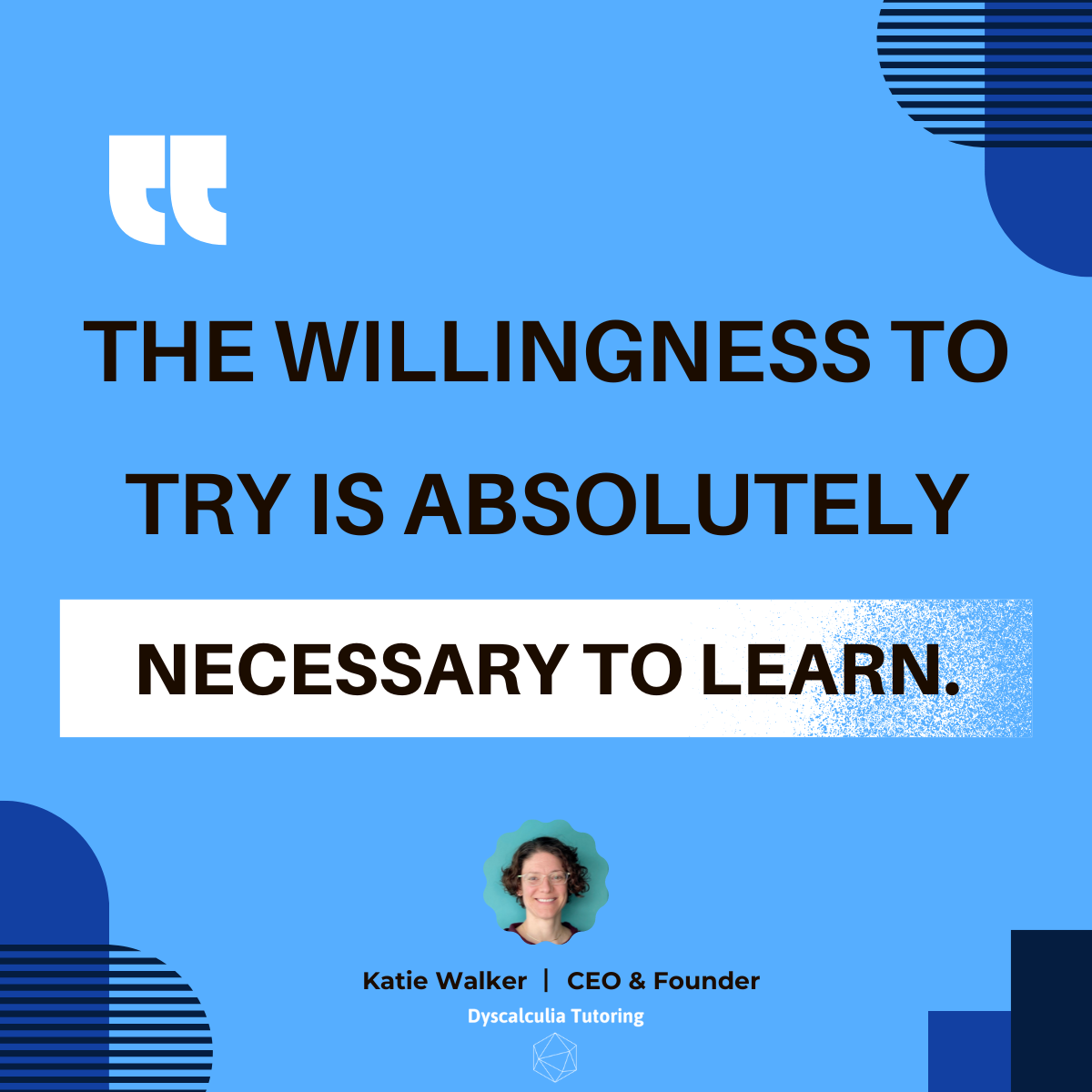
Modeling a Growth Mindset and Recognizing Early Warning Signs of Math Anxiety
Collaboration is key to helping students overcome math anxiety and learning challenges. This article explores how parents, tutors, and educators can align their efforts to create a supportive network. From fostering open communication to setting shared goals and celebrating wins, discover actionable strategies to help students thrive in math and beyond.

Collaborating for Confidence: Aligning Parents, Tutors, and Educators to Support Math Growth
Collaboration is key to helping students overcome math anxiety and learning challenges. This article explores how parents, tutors, and educators can align their efforts to create a supportive network. From fostering open communication to setting shared goals and celebrating wins, discover actionable strategies to help students thrive in math and beyond.

Creating a Safe Learning Environment: Building Trust and Encouraging Growth
Math anxiety can feel overwhelming for students and their support networks, but a safe learning environment can make all the difference. This article shares actionable strategies for building trust, encouraging curiosity, and addressing emotional needs with trauma-informed practices. Whether you’re a parent, tutor, or educator, learn how to create an environment that fosters confidence, resilience, and meaningful learning.

Helping Neurodiverse Students Overcome Math Anxiety: An Actionable Guide for Parents and Educators
Math anxiety can severely impact a student’s ability to engage with and succeed in math, especially for neurodiverse learners like those with dyscalculia. This post explores how math anxiety often creates a cycle of frustration and avoidance, impacting a student’s confidence, engagement, and willingness to learn. Recognizing this cycle is crucial for providing effective support and breaking down the barriers dyscalculic students face. The article offers practical strategies and a self-evaluation checklist for parents and educators, focusing on creating safe learning environments, reinforcing positive experiences, and using trauma-informed, multi-sensory teaching methods to build resilience and foster growth in math.

Breaking Down Math Tasks: A Guide to Scaffolding for Success
Helping students succeed in math isn’t about shortcuts or tricks—it’s about building a meaningful understanding, one step at a time. This article dives into scaffolding as a step-by-step strategy for breaking down complex tasks, using the Concrete-Representational-Abstract (CRA) approach, and applying multi-sensory learning techniques. Whether you’re a parent or educator, you’ll find practical advice on creating a supportive learning environment, providing key accommodations, and connecting math to real-world contexts to make it both engaging and achievable.

Challenges Facing High School Students with Dyscalculia
In this blog post, we discuss the top four challenges faced by high school students with dyscalculia, as highlighted by Dr. Honora Wall and Katie Walker. From the misuse of calculators to the trauma caused by years of struggle, we explore how educators and parents can better support these students.

The Challenges of Elementary Education for People with Dyscalculia
In this post, we explore a conversation between Dr. Honora Wall and Katie Walker on their shared passion for helping neurodiverse students, particularly those with dyscalculia. They discuss effective teaching methods, the importance of early intervention, and how strong relationships can transform a student’s math learning experience.

Transforming Math Learning: CRA and Multi-Sensory Strategies for Neurodiverse Students
Unlock your child's math potential with strategies that work for all learners, especially those with learning differences. Discover how the Concrete-Representational-Abstract (CRA) approach and multi-sensory instruction can transform math education by engaging multiple senses and creating a more inclusive learning environment. Whether you're a parent or educator, these methods are essential tools to help every student succeed in math.

How Different Types of Neurodiversity Impact Math Learning
Discover how neurodiversity impacts math learning for students with dyscalculia, dyslexia, dysgraphia, and ADHD. Learn about specific challenges and practical strategies to support neurodiverse learners in understanding and excelling in math.

Navigating the Special Education System: Top 10 Terms Every Parent Should Know
Navigating the special education system can be overwhelming for parents new to the process. Our latest blog post breaks down the top 10 essential terms and acronyms you need to know, complete with real-life scenarios and expert tips to help you effectively advocate for your child's needs.

Embracing a Growth Mindset
Discover how adopting a growth mindset can transform your child’s math experience. We delve into the concepts of selective attention and the Gap and Gain framework, providing practical strategies to foster a positive learning environment. Learn how focusing on daily wins can boost confidence and encourage continuous improvement. Read more about these transformative ideas and how to implement them effectively to help your child succeed in math and beyond.

What is Working Memory?
Ever feel like your brain has too many tabs open? That’s your working memory being strained!

Embracing Neurodiversity
ADD/ADHD and specific learning disabilities like dyscalculia are not confined to the fringes of our society; they are in our communities, families, and workplaces. Awareness of neurodiversity improves support systems, demands better accommodations, access to resources and put an end to stigmatization.

The Importance of Language & Fostering Neurodiversity
Language is more than just words; it's a powerful tool to shape how we understand ourselves and the world around us. We are ALL neurodiverse! We live under a very colorful umbrella of neurodiversity. The words we choose can either foster connection and inclusivity or perpetuate division and misunderstanding.

6 Effective Strategies for Teaching Math to Children with Dyslexia
While teaching math to students with dyslexia is not exactly the same as teaching math to students with dyscalculia, there’s a lot in common with dyscalculia. Read on to learn some strategies that may be helpful for both types of learners!

Empowering Conversations: Discussing Learning Differences with Your Child
We're here to assure you that having a safe, open, and honest conversation with your child will positively impact your child's overall confidence and success. Sharing and discussing your child’s learning difference with your child is a choice that can lead to remarkable empowerment in your child.